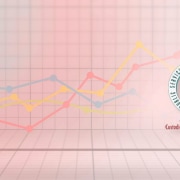|
Getting your Trinity Audio player ready...
|
By Moepeng Talane
In a recent newsletter distributed by his office, President Cyril Ramaphosa mentioned the differences between honest and dishonest public servants, claiming that although the public service has become known over some years more for dishonest conduct, there is still hope for restoring its image and confidence in its mandate.
He was commemorating the beginning of public service month, observed officially in September very year. His statement also came amid what staff at the constitutionally established custodian of the public service – the Public Service Commission (PSC) – call a “mafia” organisation that is polarised along tribal lines, among other things.
“We have become too used to stories of civil servants involved in maladministration, embezzlement, corruption and other forms of conduct that betray the values of the public service,” Ramaphosa wrote.
He ended off his message by sharing what values public servants must embrace in their work: “It may be said that they are just doing what they are paid to do. But public service is a calling – one to which they have ably responded in order that the rights of all people in this country are fulfilled.”
For this to happen, a complete overhaul of the PSC would have to be undertaken to rid it of its partisan culture, says a whistle-blower who spoke to Corruption Watch on a condition of anonymity. There would have to be assurance that accountability is demanded of all public servants, even those at the top echelons of government institutions, and those with political connections. Institutions that are led through fear of victimisation of staff who expose unethical conduct should receive as much attention as those that perform well.
“Anyone who applies to work at the PSC understands, and generally most of us would have come from departments, be it nationally or provincially. We would be then aspiring to work for the one body that is the over-arching body in the public service,” said the source. “Its reputation is that of ‘wow, this is the Public Service Commission, we are going to get good governance’.
“It is the custodian of good governance after all. So when one looks at its foundational principles in section 191 of the Constitution, it first says that there must be a high standard of professional ethics being maintained and promoted within the public service and it is for this body to do that. Have a high standard of professional ethics, promote that, and maintain that.”
The straw that broke the camel’s back for the PSC, continues the source, was the revelation in the media in January 2020 of alleged misconduct by the commission’s then director-general (DG), Dr Dovhani Mamphiswana.
A media article by the Sunday Independent in January last year revealed how Mamphiswana oversaw the recruitment process in which the mother of his child and a lower-ranking official in the commission, Boitumelo Mogwe, was appointed to the position of chief director: professional ethics in August 2019.
“The first communication that went out to us as staff was from the chairperson to say there should stop being rumour-mongering amongst staff. There was no immediate suspension of Mamphiswana. There was no immediate investigation. In fact, everything went dead.
“The only recourse was for the whistle-bower to include the DA, for it to start asking heated questions in Parliament. That is the way this matter got attended to. Otherwise it was going to, it had in fact, been swept under the rug.”
When an investigation did happen, it was at the insistence of then minister of public service, Senzo Mchunu, and was conducted by Advocate Smanga Sethene, instructed by the Office of the State Attorney. Sethene’s own process met some resistance from within the PSC, according to his report, and was at some point halted while the presidency sought to determine the terms of its own investigation into Mamphiswana as per its power of authority over DGs.
Mamphiswana was suspended by President Cyril Ramaphosa in June while that probe went on, and later found guilty and dismissed in December. Following the Sethene investigation, Mogwe was herself put through a disciplinary process that has since found her guilty of corruption as, like Mamphiswana, she failed to declare the potential conflict of interest shared between them.
Whistle-blower threatened, staff victimised
What’s concerning though, according to the whistle-blower, is that while these legal processes were underway, the staff of the PSC were being subjected to untenable conditions of employment, victimised in an effort to root out the person who approached the media with the information. The reaction of the leadership of the commission was unexpected, and left many questioning their loyalty to the organisation.
“It wasn’t to say ‘oh my goodness this has brought shame upon the organisation’. Some senior managers were heard telling junior staff members that where they will find the whistle-blower, the whistle-bower will regret it.
“The deep-rooted fear that exists [is] because people have seen others victimised. Just to paint a picture for you, when this person blew the whistle and the article came out, the objective from people high up in the organisation was to find the whistle blower. How sick is that?”
Sethene describes in his investigation report – which Corruption Watch has seen – that Mamphiswana and Mogwe were both unco-operative with his process, the former invoking silence due to the presidency probe. Some members of staff who were interviewed as part of the investigation told of their fear of victimisation for participating in the process, which was not unfounded according to the Corruption Watch source, given that threats were made well known by the organisation’s leadership.
One of the recommendations by Sethene in his report was for the PSC leadership to ensure that the said victimisation ceased and all staff be given ethics training. He further recommended that the organisation “ensure that all the PSC employees who assisted in this investigation are not subjected to any occupational detriment as defined in section 1 of the [Public Disclosures Act] PDA.” Another recommendation is for the report, including transcripts of all interviews conducted, to be placed on the PSC’s website for staff to access.
Secret monitoring of staff
To further understand how difficult the environment is for staff, however, despite this recommendation, the source intimated to Corruption Watch that one has to look holistically at the organisation – once a beacon of esteem and respect – that has now turned into a “cowboy show”, in their view.
Staff were being monitored without their knowledge, the allegation continues, with private investigators enlisted to help with the process of elimination in identifying the whistle-blower.
“People were being contacted by private investigators, telling them that they are being watched. People’s telephones were being tapped. They were looking for this whistle-blower by hook or by crook and talking about a fancy mechanism called the PDA [Protected Disclosures Act], that’s not at this particular point going to assist anyone.
“The whistle-blower in this particular case … went straight to the press. They didn’t bother following the route of the PDA, because everybody knows that the PDA is just a fancy billboard but it does absolutely nothing for the protection of individuals.”
The Act provides procedures in terms of which any employee may disclose information relating to an offence or a malpractice in the workplace, as well as terms under which that employee is protected. Many whistle-blowers who have reported allegations of corruption in the public service to Corruption Watch, however, lament both the threat of exposure presented by the PDA, and the failure to implement it by those who have the power to do so in the event of disclosures.
“I actually think that the whistle-blower was extremely wise in not quoting anything, because even if you do everything in terms of that PDA and you disclose to the proper people, you state that you’re doing it under the Act, the minute you write that this is a disclosure in terms of the PDA, you are guaranteed protection by the Act, but the question is do you really get the protection?”
Where does the fear to blow the whistle come from?
It would be simple if those who want to blow the whistle could be guaranteed protection from the PSC leadership, but this is not the case, says the source. “At the end of the day you’re going to tell the principal about the teachers. Now, depending on the principal’s attitude, whether the principal is open to talking badly about his teachers, that is the concept of the whistle-blower.
“And I’ve never found the principal really willing to listen, because these are his teachers, and that is why this whistle-blowing story doesn’t work out well because you’re finding yourself talking about the very people that have been put in power politically, by those in power.”
The restoration of the PSC to its former glory is vital for the restoration of citizens’ confidence in the broader public service, says the source.
“It can never be that the public service can at any given point succumb to being a place of nepotism and favouritism, especially with the selection and recruitment processes, because that’s the only thing we rely on.”
In part 2 of our investigation into the PSC, we highlight the weaknesses and potential triumphs that could be realised if the body’s restoration drive is taken seriously.








